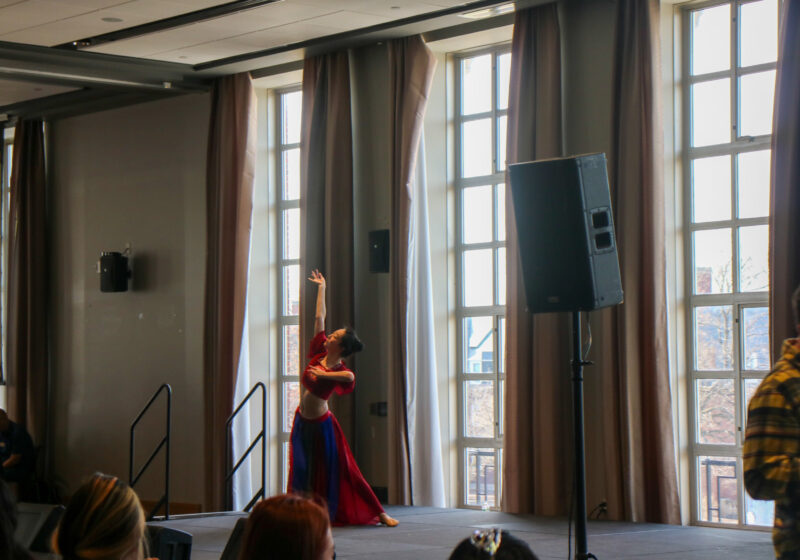It was mid-June, just a few weeks after the murder of George Floyd by police. The Black Lives Matter movement was seeing heightening momentum in communities across the globe, including here in the UR community. Petitions urging UR both to improve the University’s treatment of its students of color, and to rethink its impact on Rochester’s minority communities, were gaining thousands of signatures.
Students of color asked for their stories to be listened to, their experiences to be taken seriously, and their voices to carry weight. One of the petitions also gathered and published testimonials on the University’s impact on communities of color and treatment of its Black students, faculty, and staff.
On Instagram, students across the country have made accounts sharing the experiences of students of color, especially Black students, regarding racial issues. Seeing those accounts, @BlackatUR was formed.
“There is a high possibility that if our team didn’t decide to endeavor on this work and start this page, another person or group would have, due to our current climate and the demand for a space like this to be created,” the creators, who asked to remain anonymous, said. In just three months, the account has gained over 1,700 followers.
Regardless of the school, the general idea behind a @Blackat___ account follows the same formula: Account owners gather testimonials through a Google Form linked in their bio, and post those testimonials. The responses are kept anonymous, and allow for a space for students to publicly share their experiences of being tokenized, facing discrimination, or experiencing microaggressions. As the creators of the account put it, the goal of the nationwide movement was to “unpack historical disparities in higher education.”
Though the name implies that it’s limited to Black students’ experiences, it has expanded to include all Black, Indigineous, people of color (BIPOC) students. “We felt that all students of color on campus have experiences that matter and should be valued,” the account’s creators said. “We wanted students of color [to] find support and grow networks with fellow non-white students.”
The posts were powerful. A Black student faced noise complaints for “blasting rap music,” even though the student doesn’t listen to rap. A Latino student interested in studying racial health disparities was told that those health disparities don’t exist and asked if they “have [immigration] papers.” A group of white students told an Asian student to “drop it like Hiroshima.” Several posts discussed racial discimination in Greek Life. A non-Black student of color was laughed off when challenging a friend who sang along to the N-word in a song.
Although most of the page is testimonials, the account also shares posts disagreeing with previous ones. “Just as BIPOC experiences and opinions are not monolithic neither is the @blackatur page,” the creators of the page said. “The pool of BIPOC student opinions is just as diverse as BIPOC students on campus are.”
The creators argued that having conflicting posts shows that their agenda is not to dismantle any organizations, but to share authors’ experiences, which can differ widely in an intersectional community.
Public response to the page has been mixed, which its creators expected. The account has received a lot of support, praise, and thanks. But the account also receives messages asking for them to corroborate the stories they publish. “Our page is not the place to solicit people for that information,” the team behind the account said. “Especially because our campus currently can discourage BIPOC students from coming forward with their experiences, and interrogate these stories questioning their credibility or their import.”
So far, over 70 testimonials have been posted. As of Wednesday, every submission they’ve received has been posted, though some are edited, redact the names of individuals mentioned, or have an addendum in the comments. Most of the submissions receive hundreds of likes and reshares.
A few of the page’s posts are not testimonials. They organized a fundraiser featuring student performers that raised over $200 for charities. They’ve published the list of courses being offered this semester in African American Studies or through the Frederick Douglass Institute (FDI).
The fundraiser video and FDI course list can also be found through a Linktree in the page’s bio. Also linked are the submission form for testimonials, the Susan B. Anthony Institute’s page about the Scholar Strike and teach-in, and multiple petitions.
UR’s response to the petitions has been frustrating to @BlackatUR admins. “We have provided the administration more than enough proof of racism, discrimination, and inherent problems with the institution of [UR],” they said. “They need to act.”
They had expected an increased amount of submissions after students returned to campus, but they have not yet seen such an uptick. “We have noticed more frustration and anger in our posts, which may be indicative of students being very tired and angry in this current climate with the protests going on,” they said.
There have been several posts echoing that frustration, aiming it either at students for not supporting the protests enough or at administration for not representing Black people and for not implementing some of the demands of the petitions.
In recent weeks, the posts seem to be garnering more likes and reshares, but it is unclear whether seeing and sharing the voices of students of color will result in policy changes. However, the creators said the account shows the importance of sharing experiences as a goal in itself.
“Our primary function is to serve and amplify the voices of BIPOC students at the end of the day.”






